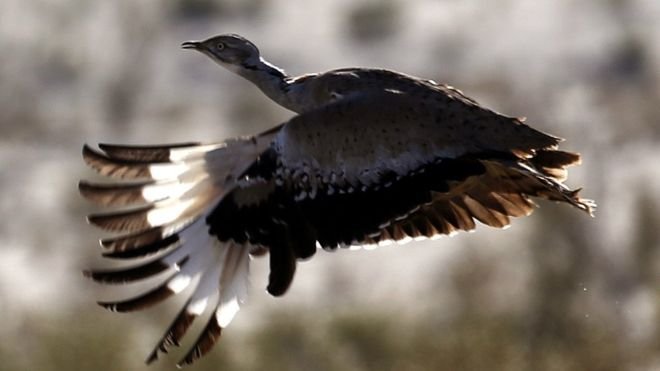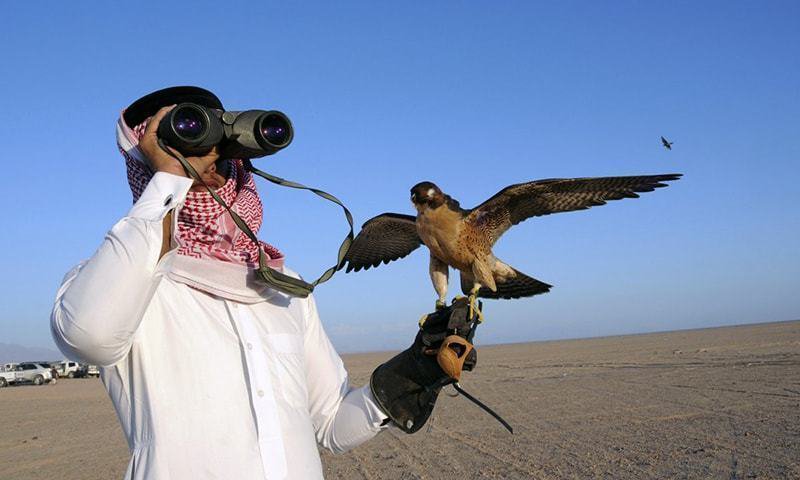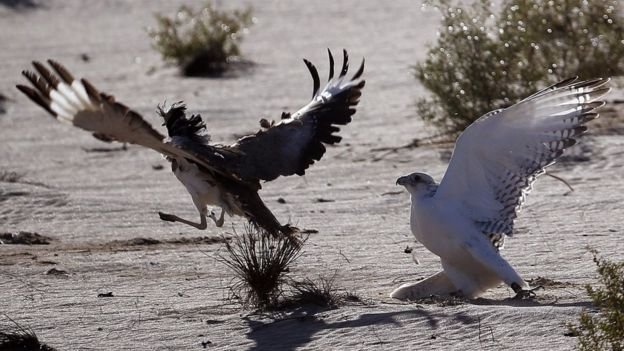Pakistan’s Supreme Court on Friday, January 22, overturned its decision to ban the hunting of the houbara bustard, a rare desert bird whose meat is prized among Arab sheikhs as an aphrodisiac. Wealthy hunting parties from the Gulf travel to Pakistan’s southwestern Balochistan province every winter to kill the houbara bustard using hunting falcons.
The issue has also cast a spotlight on traditionally close ties between Pakistan and its allies in the Arab world, particularly Saudi Arabia. A provincial High Court in Balochistan in November 2014 cancelled all permits for hunting in the province, but the federal government headed by Prime Minister Nawaz Sharif, a close ally of Saudi Arabia, continued to issue licenses.

Last year the Supreme Court banned hunting of the bird entirely, in a decision welcomed by wildlife campaigners. The International Union for Conservation of Nature includes the bird on its “red list” of threatened species, estimating there are fewer than 97,000 left globally. But the federal and provincial governments asked the court to review the decision, claiming that controlled hunting was a tool for preservation and should be allowed.

In a judgement issued Friday, the court said it had set aside its original decision to ban hunting of the bird and that petitions on the issue would be listed for fresh hearings. Sharif, along with powerful military chief General Raheel Sharif, visited Riyadh earlier this week in what his office said was an effort to ease tensions between Saudi Arabia and Iran.

Pakistan has deep military connections with Saudi Arabia and it has long benefited from the oil-rich kingdom’s largesse. The prime minister has close personal ties with the Saudi royal family, who sheltered him during years in exile.

















